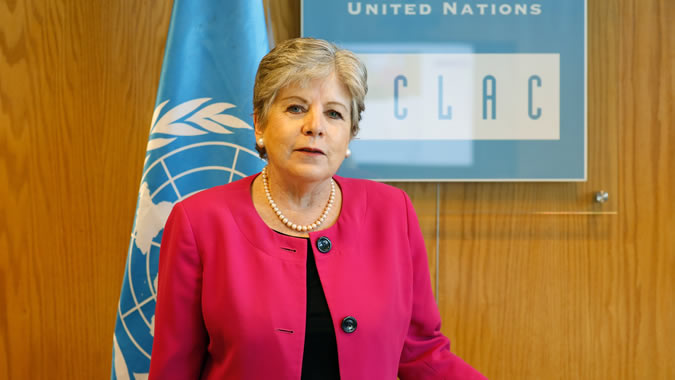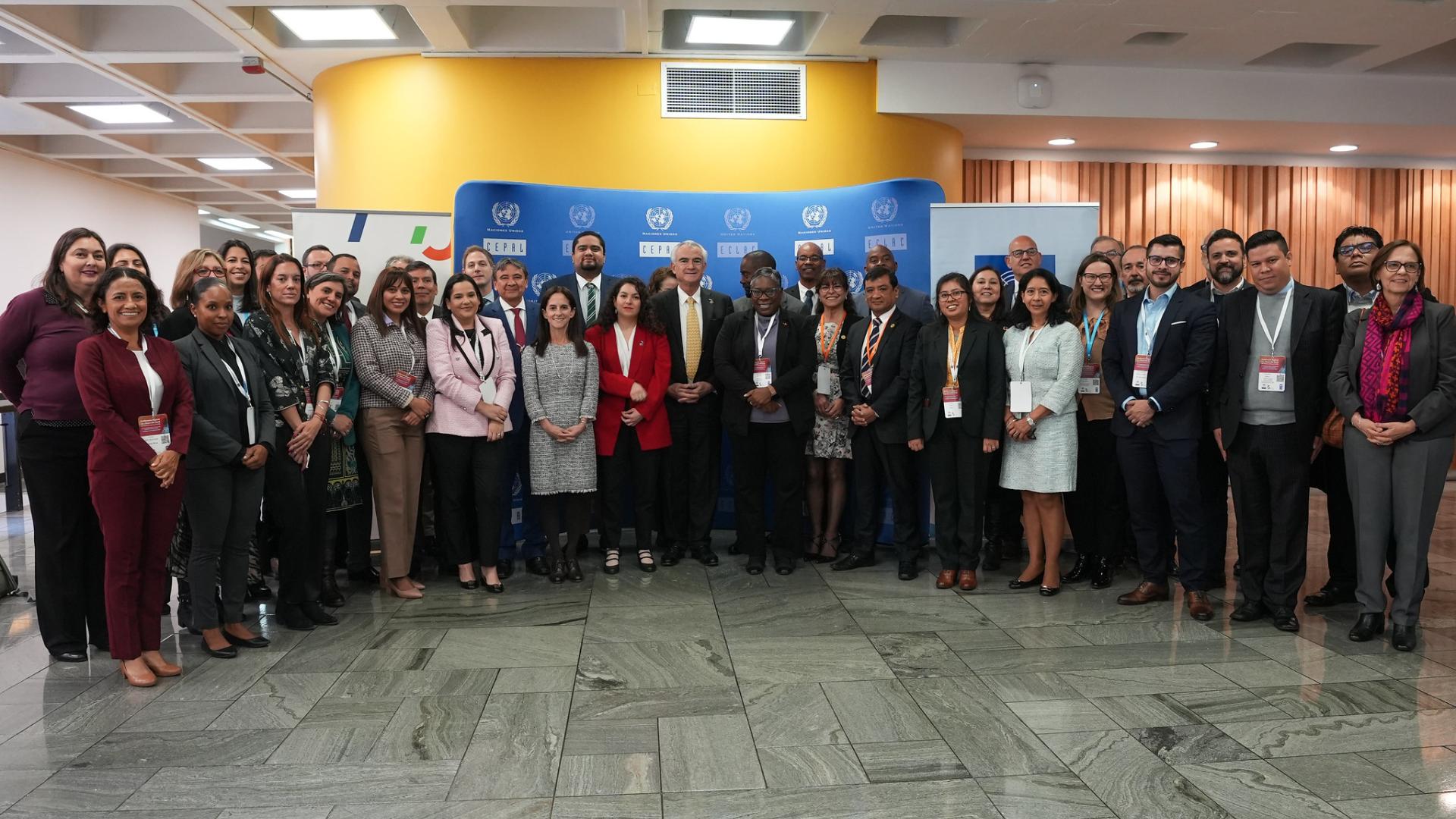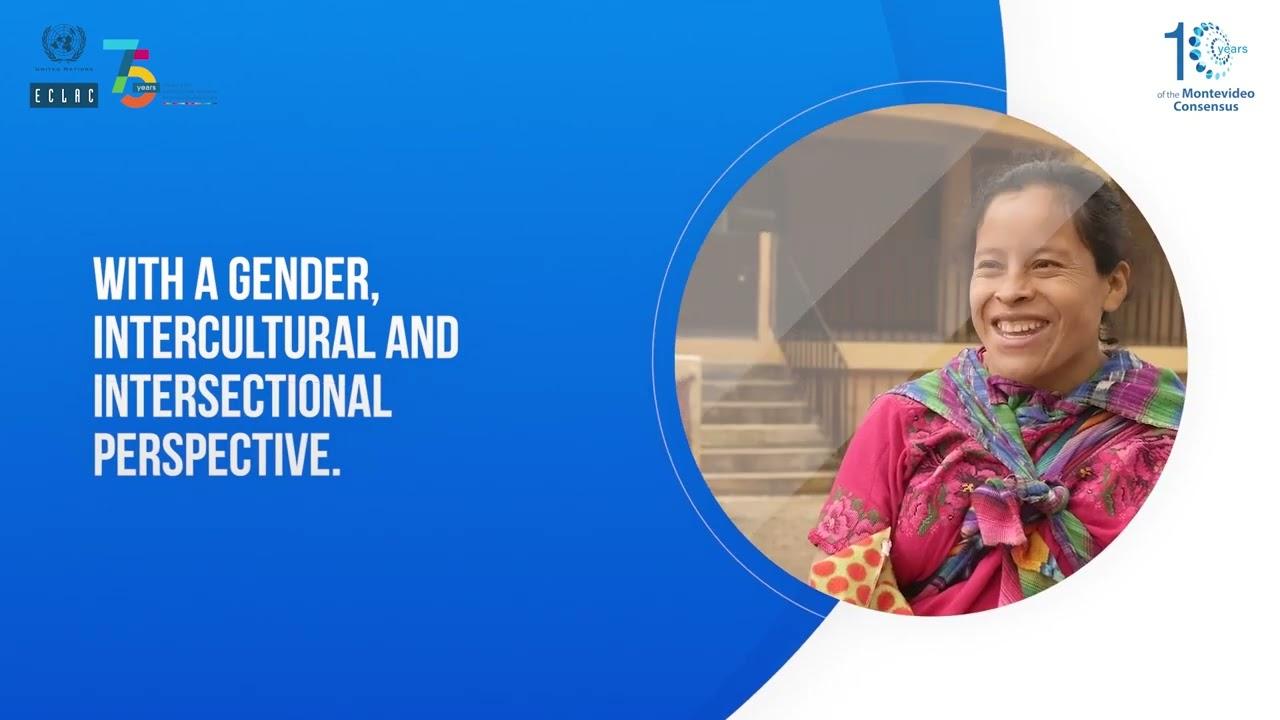Briefing note
“ECLAC is part of the Global Alliance for Care Work, which represents a great opportunity to give visibility to Latin American and Caribbean countries’ pioneering efforts to overcome the structural constraints of gender inequality and foster a transformative recovery with equality,” Alicia Bárcena, Executive Secretary of the Economic Commission for Latin America and the Caribbean (ECLAC), said today during a virtual event entitled Global Alliance for Care Work: Exploring and sharing commitments and good experiences, organized by the National Women’s Institute (INMUJERES) of Mexico and UN Women.
The Global Alliance for Care Work is an initiative promoted by the Government of Mexico, through INMUJERES, and UN Women, in the framework of the Generation Equality Forum (which began in Mexico in March and will conclude in Paris, France on June 30-July 2, 2021).
This event featured opening remarks by Phumzile Mlambo-Ngcuka, Executive Director of UN Women, and Nadine Gasman, President of the National Women’s Institute of Mexico. Bárcena kicked off the high-level segment, which included the participation of Antonia Morillas González, Director General of the Institute of Women of Spain; Marcela Guerrero Campos, Costa Rica’s Minister for the Status of Women; and María Inés Castillo, the Minister of Social Development of Panama, among other international officials and representatives of women’s advancement mechanisms, multilateral organizations, the business and philanthropic sectors, and civil society.
With more than 40 years of experience with the Regional Conference on Women meetings, Latin America and the Caribbean has built a progressive and comprehensive gender agenda that complements the commitments of the 2030 Agenda for Sustainable Development, Alicia Bárcena indicated in her remarks. “We gather today to stress the importance of care. It is urgently necessary to overcome the sexual division of labor, to guarantee care as a right and a public good, to develop comprehensive care systems, with specific investments, and to recognize this sector as a driver that generates jobs and contributes to the economy,” she sustained.
ECLAC, added Bárcena, will continue contributing to raising the visibility of time use in the framework of the Statistical Conference of the Americas (SCA). Specifically, she noted that next November, during the eleventh meeting of that subsidiary body of the Commission, participants will adopt – as a regional standard – a methodological guide on time-use measurements in Latin America and the Caribbean, based on lessons learned by the region’s countries. This will serve as a contribution from the region to the Global Alliance. The working group is being coordinated by Mexico.
“For more than 18 years we have built a statistical community. Today, 19 countries in Latin America have time-use measurements and 10 have put an economic value on unpaid work in the home, and in some cases we are talking about a monetized volume equivalent to between 15.7% and 24.2% of GDP, with women contributing around 75% of this value,” she emphasized.
“We have to keep breaking the statistical silence so that the COVID-19 crisis does not continue deepening the structural constraints of gender inequality. We do not know how many of the measures being taken by governments in the region today have truly benefited or affected women, but we do know that 3 million businesses have closed, and the burden of unpaid work and care work has intensified for women, who already spent triple the time on domestic and care work than men,” she warned.
There has also been a steady outflow of women from the labor market. “Women’s labor insertion has been set back by more than 18 years,” she underlined.
With regard to innovative solutions, Bárcena indicated that ECLAC is working on the construction of georeferenced maps and is supporting, for instance, the design and implementation of the District Care System (SiDiCu) by the Mayor’s Office of Bogotá.
In addition, she stated: “We have to look at the labor conditions and the certification and recognition of skills of the millions of women who are in this chain of care, taking a special look at the situation of migrant women.”
Including the care economy in the plans for reactivation and mitigation amid the COVID-19 crisis is a matter of urgency, Bárcena said. “But ECLAC not only proposes moving towards a care economy, but instead a care society that would recognize the central role of women.” These are part of the debates that we are promoting ahead of the Fifteenth Regional Conference on Women in Latin America and the Caribbean, which will take place in Argentina in 2022, she said.
“This pandemic showed us the importance of the infrastructure of life. We need a society that cares for the planet, for people. And that society has to change its development paradigm. We must achieve an equitable distribution of power, resources and time between men and women. This is about an urgent, civilizational change. The world and women can wait no longer. The time is now. We reaffirm ECLAC’s unconditional commitment to and our ongoing work with the Global Alliance for Care Work,” she concluded.
The goal of the Global Alliance for Care Work is to achieve women’s economic autonomy, fostering the creation of comprehensive care systems, promoting the transformation of gender roles, and accelerating an economic recovery with equality in the wake of the COVID-19 pandemic through fulfillment and implementation of commitments and concrete actions in relation to care.



